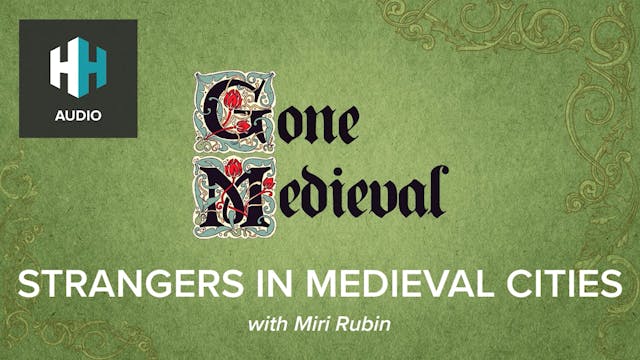🎧 Shakespeare's Richard III: History or Prophecy?
🎧 Gone Medieval
•
33m
Richard III is one of Shakespeare’s most controversial plays, often cited as the basis for the King’s reputation as a scheming murderer. But what do the Bard’s history plays tell us about the period they are set in and how that era was viewed in Shakespeare’s time? Are there allusions to Elizabethan figures in Richard III that Shakespeare knew his viewers would understand?
In this edition of Gone Medieval, Matt Lewis heads to Stratford-upon-Avon to catch up with director Greg Doran and Arthur Hughes - the first actor with a disability to play Richard III in a major production - to talk about the Royal Shakespeare Company’s new production of the iconic play.
The Senior Producer on this episode was Elena Guthrie. The Producer was Rob Weinberg. It was edited by Seyi Adaobi.
For more Gone Medieval content, subscribe to our Medieval Mondays newsletter here: https://www.historyhit.com/sign-up-to-history-hit/?utm_source=timelinenewsletter&utm_medium=podcast&utm_campaign=Timeline+Podcast+Campaign
Up Next in 🎧 Gone Medieval
-
🎧 Anglo-Saxon Treasures at Norwich Ca...
Norwich Castle was designed by William the Conqueror to be a royal palace. But no Norman kings ever lived in it. Instead it became a gaol and then - in the Victorian era - a museum, which is today packed with archaeological finds that lift the lid on life in Anglo-Saxon East Anglia.
In this edit...
-
🎧 Digging up the 'Dark Ages'
An extraordinary discovery has been unearthed by archaeologists working alongside the HS2 rail project. The find, made at an undisclosed location near Wendover in the Chilterns, consists of a 5th-6th century burial site that has been described as one of the most important post-Roman, early mediev...
-
🎧 Strangers in Medieval Cities
Between AD 1000 and 1500, European towns and cities started to take shape, impacting the lives of millions of people as different cultural, social and religious groups began to interact. But who was allowed to settle in a city and how was it decided who belonged?
In this edition of Gone Medieval...



